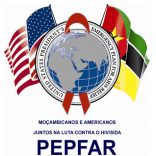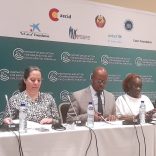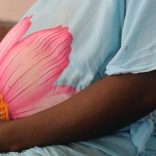Mozambique reports four more confirmed mpox cases
Mozambique: Lack of funds to tackle humanitarian crisis is ‘very serious’ – UN

File photo: Lusa
The United Nations resident coordinator in Mozambique, Myrta Kaulard, described as “very serious” the lack of financial resources to address the humanitarian crisis in the country, a reflection of the impact of Covid-19 in the main donor countries.
The humanitarian plan launched in December jointly by the Mozambican government and the UN, with an appeal for the mobilisation of $254.4 million (€211 million) and a focus on Cabo Delgado, has merited very positive responses, but Myrta Kaulard is tempering expectations as to the materialisation of the donations.
“We have to be realistic: this year is very difficult because Covid-19 has negative implications for the global economy,” meaning countries that are normally among the biggest contributors, are the ones that have fewer resources than usual, she said.
A UN source in Maputo detailed to Lusa that, except for some initial contributions, such as $3.6 million (€2.9 million) from Japan, delivered on Wednesday, the plan is severely underfunded.
The severity is linked to a dilemma, Myrta Kaulard pointed out.
Kaulard said that although this is a time of constraints for donors, it is also the right time to support Mozambique, at the risk of the needs being much greater and more serious in the future.
“Now it is worth investing, it is worth contributing because we can have quick solutions and that is essential to be able to guide Northern Mozambique back to its development path,” she told Lusa.
Not doing this will cause many more problems and the country will need even more resources in the future, she noted.
The problem of terrorism, such as the one affecting Mozambique’s northern region, is very complicated and there is no single solution, Myrta Kaulard stressed.
“The United Nations is increasing its capacity and presence in the region, on the one hand in humanitarian response, but also the area of rehabilitation,” noting that one of the most important causes of the current crisis is the development deficit, which means it is important to invest in institutional capacity building, cooperation and infrastructure.
She also considered important respect for human rights, essential for peace and development, as well as greater climate resilience.
The attacks by armed groups began in 2017 and the conflict with Mozambican forces continues, with the origin and motivations of the attackers still unclear – some attacks were claimed by the jihadist group Islamic State, but delimited between June 2019 and November 2020, leaving the debate open.
The resulting humanitarian crisis includes 670,000 displaced people and more than 2,000 dead, in a region identified for years as part of international trafficking routes for drugs, precious stones, timber and other resources.
Cabo Delgado is also the region where Africa’s largest private investment for natural gas extraction is advancing.













Leave a Reply
Be the First to Comment!
You must be logged in to post a comment.
You must be logged in to post a comment.